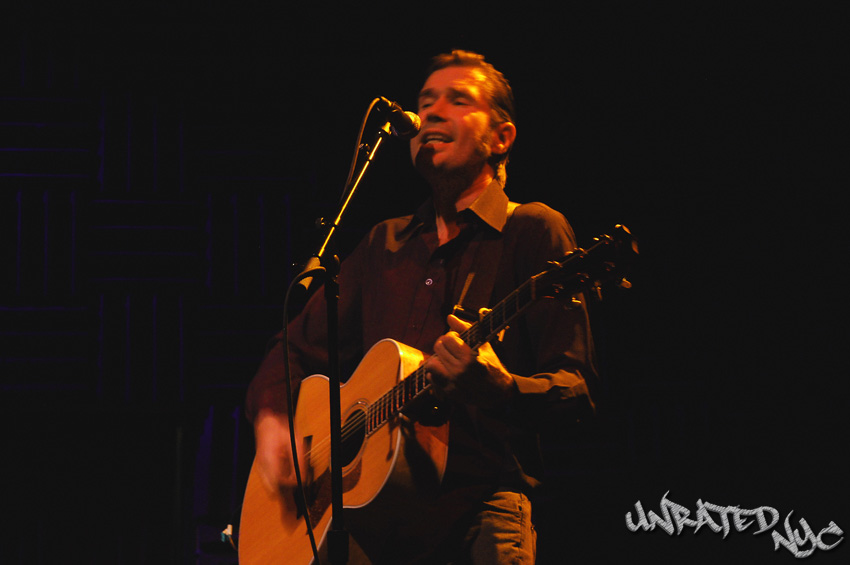When Justin Currie performed at New York City’s famed Joe’s Pub in mid-June the place was packed with people of all ages expecting to hear tunes from the group he co-founded in Scotland during the mid 80’s called Del Amitri . Songs like “Kiss This Thing Goodbye,” “Just Like A Man,” and “Always The Last To Know” gained notoriety because of Currie’s ability to combine uplifting tunes and darker lyrical themes, but in 2007 Currie went solo with the release of What Is Love For, an album Currie himself describes as “a very introspective record.” Click Here to see galleryDespite the lack of attention What Is Love For received Currie kept writing music, and in 2010 his second album, The Great War hit stores around the country. “I didn’t want to repeat what I’d done on What Is Love For,” Currie states. “It was so sad and dark that I didn’t really expect it to get any airplay. But The Great War is much brighter and more  accessible; there are actually three or four positive love songs on there, which is unusual for me,” but those songs don’t come without dose of heartache. The album actually starts out like something from Del Amitri, upbeat and optimistic with a tinge of despair, but as the album progresses so does its emotional intensity.
accessible; there are actually three or four positive love songs on there, which is unusual for me,” but those songs don’t come without dose of heartache. The album actually starts out like something from Del Amitri, upbeat and optimistic with a tinge of despair, but as the album progresses so does its emotional intensity.
Throughout the album’s first half things seem innocent enough. Man finds a woman and they fall in love, but by “Anywhere I’m Away From You” we see the relationship becoming dysfunctional. On the song “You’ll Always Walk Alone” we hear about the girl he “strings along” and how he is destined to be alone, but it’s on the album’s emotional climax, “The Fight To Be Human” we see how far he’s fallen. The build up on this song is so tragic and intense that it feels like someone is squeezing your windpipes tighter as the despair in his voice grows. It captures a visceral tragedy that everyone anywhere can relate to, but not all is lost as the next song, “Ready To Be,” invites the idea of hope and renewal. It’s as if the main character in this tumultuous narrative sees the light at the end of the tunnel for the first time.
“I also used the device of making little jokes out of the songs,” he continues, “so quite a few of the songs on The Great War have punchlines that completely reverse the assumed meaning of the song. I find that enormously satisfying when it works. A famous poet, whose name I forget, said that a poem must always have a little revelation at the close—a quiet epiphany—and I see no reason why songs can’t sometimes do the same. Why repeat to fade? Why not end on a handbrake turn, a slap in the face or a ‘reveal’? I tried to make the entire album do this, so that the last line of the last song is an unmasking.”
For this reason people packed Joe’s Pub to witness Currie crooning his heart and soul as a one man show, and nobody left the building disappointed. The Great War is, in fact, a quiet epiphany about the emotional endurance of man. It teaches that when all is lost you can still find yourself within and grow from that, and that is the innocent beauty Currie uses to captivate his listeners. “If I have a mission as an artist,” he concludes, “it would be to get a little more poetry into the great warehouse of rock music. All I can do is get it out there and fight to be heard; that’s the great war.”

All images are copyrighted.
**Click on any picture below to initiate Lightbox Gallery.












